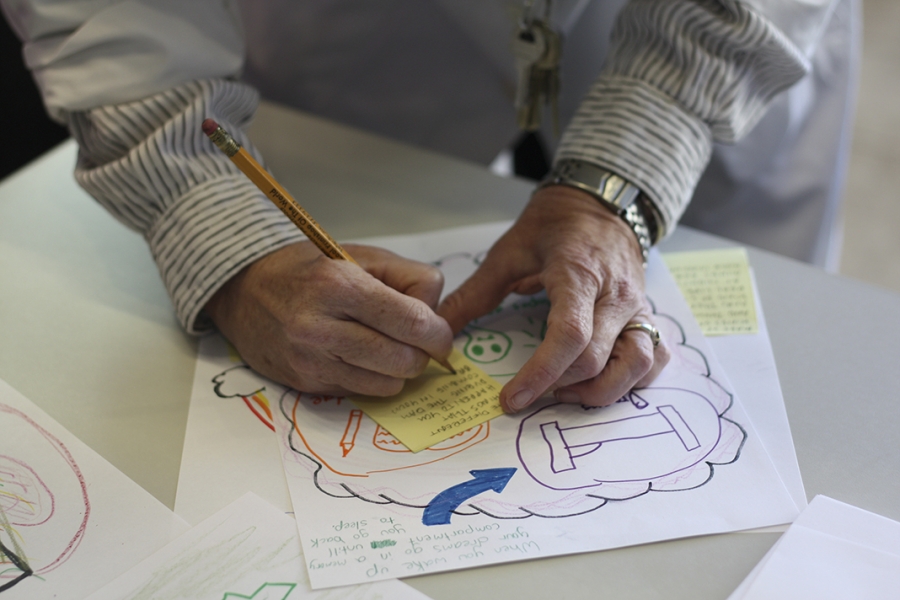Imagining resilience: Art-science collaboration for sustainability

2014
This year’s workshop and Conference are organized by Steve Carpenter (USA), Laurie Beth Clark (USA), and Pablo Marquet (Chile). The workshop will be attended by about 30 people and will focus on the opportunities and challenges emerging from the encounter between disciplines that have been historically separate. The public conference will endeavour to integrate these perspectives with other regional and national stakeholders.
Workshop and Public Conferences SARAS 2014, December 15th to 18th
The context
The South American Institute for Resilience and Sustainability (SARAS), based in Maldonado, Uruguay, is focused on interdisciplinary research on the impact of change and instability on natural and social environments. As part of its mission, SARAS brings together scientists, social scientists, artists and humanists to think about complex systems and uncertain futures. Although SARAS will eventually host research residencies at its headquarters in Bella Vista, Uruguay, the construction is just beginning in 2014. In the interim, the Institute has, for the past four years, hosted annual workshops for small groups of international researchers in Maldonado, Uruguay, on issues such as: Sustainable future of freshwater in Latin America (2010); The future of small-scale coastal fisheries in Latin America (2011); Critical Transitions [Sustainable future of grasslands and forests in Latin America] (2012); and Education for Uncertainty (2013).
The event
This document is the framework for the 2014 workshop and conference on Art-Science Collaborations, coordinated by Steve Carpenter (USA), Laurie Beth Clark (USA), and Pablo Marquet (Chile). The four-day workshop for 30-40 attendees will focus on the opportunities and challenges that emerge when we try to bring together disciplines that have been historically separate. It will include a one day public symposium at which we will share our research with regional stakeholders.
The problem
Every ecosystem is a legacy of events that took place at different times in the past. The present environment reflects different processes that occurred not at one single moment but over different periods of time. Similarly, the actions we are taking now cast shadows of different lengths on our future. We are in the midst of creating legacies that have short, medium and long term effects on sustainability. These complex and dynamic systems are challenging to visualize. We do not have enough language to understand and communicate about the future of ecosystems so that it is accessible to different types of individuals and communities. To do so requires both data and imagination. As such, this is a challenge that is highly suited to an interdisciplinary team of artists and scientists. Yet practitioners rarely come into contact with one another across disciplinary divisions in their training process. Our goal is to influence a new generation of researchers who will more fluidly draw on a range of creative approaches. Yet our broader interest is the conceptual challenges that are common to creative processes in both art and science. Among these are intuitive and analytical thinking processes, forming meaningful representations of complex phenomena, creating physical representations of abstractions, and training young artists and scientists in risk-taking.
V Public Conferences SARAS 2014 – December 15th
Aula Magna – CURE – New Building, Maldonado – Uruguay
To assist to the Conferences, please complete the Registration Form – click here
Programme
09:00 Coffee and Registration
09:30 Bienvenida desde el Instituto SARAS.
Isabel Bortagaray (SARAS) y Néstor Mazzeo (UdelaR – SARAS)
09:45 Palabras de autoridades de las Instituciones impulsoras de SARAS.
10:30 Why collaborate?
Laurie Beth Clark (University of Wisconsin)
10:45 ¿Qué rima con Resiliencia? O, la emergencia de las Humanidades Ambientales.
Jorge Marcone (Rutgers University)
11:30 The Art of Resilience; the role of artists in supporting system transformation.
Frances Westley (University of Waterloo) and Shawn Van Sluys (Muscagetes)
12:00 Lunch
Case Studies in Art/Science Collaboration – Parte I
13:00 Urugua-í: Río de los caracoles.
Martha Castillo (Artista independiente) y Cristhian Clavijo (Museo Nacional de Historia Natural y ONG InvBiota Invertebrados del Uruguay)
13:30 Yahara 2070 Stephen Carpenter (University of Wisconsin), Jenny Seifert (University of Wisconsin) and John Miller (Gray Jay Graphics)
14:00 Reconnecting to the biosphere: the teleportation project.
Tone Bjordam (Independent artist), Carl Folke (Stockholm Resilience Center) and Marten Scheffer (Wageningen University)
14:30 The Image Lab at the Wisconsin Institutes for Discovery.
Angela Richardson (University of Wisconsin)
15:00 Coffee Break
Case Studies in Art/Science Collaboration – Parte II
15:30 Confluence of arts, humanities, and science at sites of long-term, ecological inquiry.
Frederick Swanson (US Forest Service)
16:00 Seabirds, architecture and theatre.
Henrik Österblom (Stockholm Resilience Center)
16:30 Sinergias entre el arte y la ciencia: Dos aproximaciones complementarias.
Miguel Van Esso (Universidad de Buenos Aires) y Osvaldo Sala (Arizona State University)
17:00 Agua y piedra de los andes.
Angela Leible (Artista independiente) y Francisco Gazitua (Artista independiente)
17:30 Reflexiones: Eduardo Viola (Universidade de Brasília), Lisen Schulz (Stockholm Resilience Center), Mariana Meerhoff (UdelaR – SARAS) and Leonardo Moreira (UdelaR)
18:00 Close cocktail
For further information please contact: conferencias@saras-institute.org
